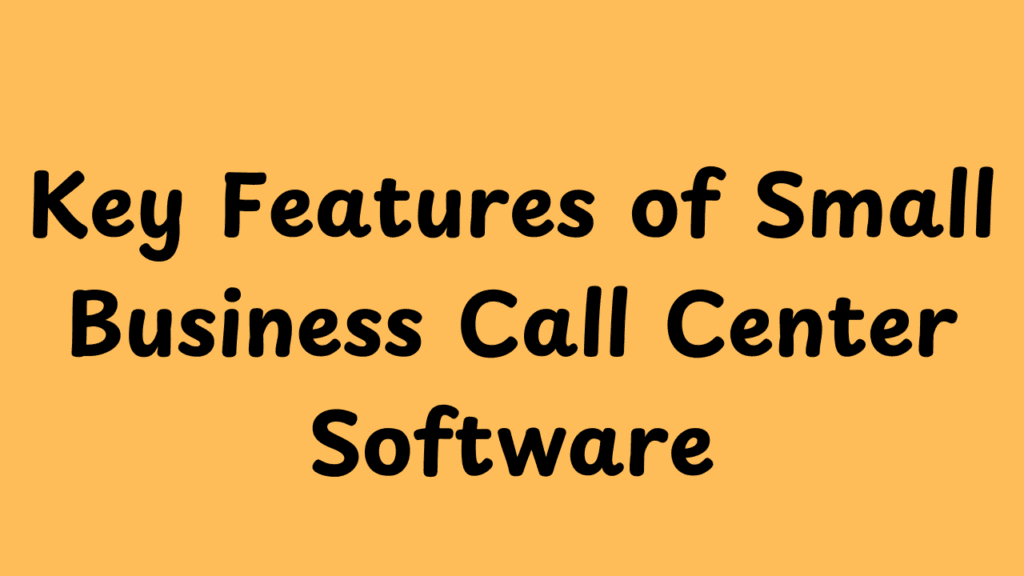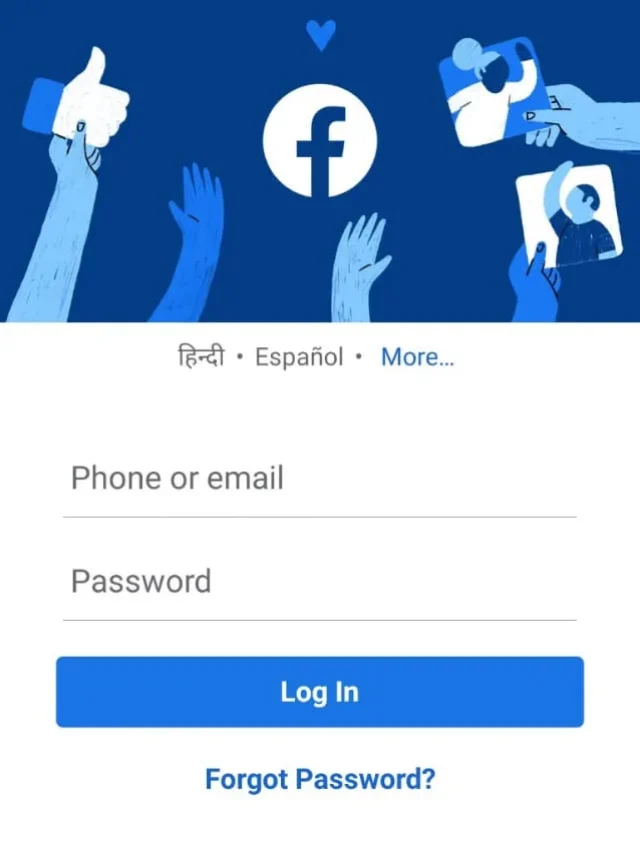In today’s fast-paced world, customer service plays a critical role in shaping a small business’s reputation and growth. As businesses grow, the need for an efficient, scalable, and cost-effective way to manage customer interactions becomes increasingly vital. Small business call center software has emerged as a powerful solution to meet these needs. It helps small businesses streamline their customer service operations, enhance customer satisfaction, and improve operational efficiency.
This blog post will explore the importance of call center software for small businesses, key features to look for, and how it can boost your customer service operations. Additionally, we will discuss the benefits of small business call center software, challenges to consider, and top options available in the market today.
Why Small Businesses Need to Call Center Software
1. Enhanced Customer Experience
For small businesses, building strong customer relationships is often the difference between long-term success and failure. Providing timely, professional, and personalized support is crucial. Traditional customer service methods like email or phone support can lead to long wait times, missed calls, and a lack of centralized information. Call center software, however, consolidates multiple communication channels (voice, email, chat, and social media) into one platform, ensuring that no customer query is left unanswered. This enhances the customer experience by allowing businesses to respond quickly and efficiently.
2. Increased Efficiency and Productivity
Small businesses often have limited resources, and manual processes can quickly become a bottleneck. Call center software automates many time-consuming tasks such as call routing, follow-ups, and ticketing. Agents can easily access customer information, reducing the need to ask repetitive questions. Furthermore, with features like automatic call distribution (ACD) and interactive voice response (IVR), calls can be routed to the right department or agent without delay, allowing for quicker resolutions and greater customer satisfaction.
3. Scalability and Flexibility
As your business grows, so will the number of customer queries and support requests. Call center software provides scalability, allowing you to handle a larger volume of calls without needing to significantly increase your staff. Many software options allow you to add more agents or expand features as your business grows, ensuring you can keep up with customer demands without investing in expensive infrastructure.
4. Cost Savings
Small businesses often have tight budgets. Traditional call centers can require significant investments in hardware, telephony infrastructure, and on-premises staff. Cloud-based call center software eliminates many of these costs, as it operates through the internet and requires little to no physical infrastructure. Subscription-based pricing models make it easier to control costs, and most solutions are highly affordable for small businesses.
5. Analytics and Reporting
Customer service metrics are key to understanding how well your support team is performing. With call center software, small businesses can access real-time analytics and reporting tools to track key performance indicators (KPIs) such as call volume, average wait time, agent performance, and customer satisfaction scores. These insights can help business owners make data-driven decisions and improve their customer service strategies.
Key Features of Small Business Call Center Software

When evaluating call center software, small business owners need to focus on features that will enhance their team’s performance and the overall customer experience. Below are some of the most important features to consider:
1. Multi-channel Communication
Customers expect to reach businesses through various channels, including phone, email, live chat, social media, and even text messaging. Small business call center software should support multiple communication channels to ensure customers can get in touch in the way they prefer. Integrating these channels into one platform allows agents to handle all customer queries efficiently without switching between different tools.
2. Automatic Call Distribution (ACD)
ACD is a feature that automatically routes incoming calls to the most appropriate agent based on factors such as agent availability, skill set, and call volume. This helps ensure that customers are connected to the right person the first time, reducing wait times and increasing the chances of first-call resolution.
3. Interactive Voice Response (IVR)
IVR allows customers to interact with an automated system that can direct their call based on predefined options. It can help streamline call routing, reduce the burden on agents, and offer self-service options for customers who prefer not to speak with an agent. For example, customers can use IVR to check order status, make payments, or find answers to frequently asked questions (FAQs).
4. Call Recording and Monitoring
Recording calls allows businesses to monitor agent performance, ensure quality control, and resolve disputes. Small businesses can use recorded calls to analyze customer concerns, train agents, and improve service quality. Real-time call monitoring enables supervisors to listen in on live calls and offer assistance if necessary.
5. CRM Integration
A Customer Relationship Management (CRM) system helps businesses keep track of customer information, including their history, preferences, and interactions. Call center software that integrates with your CRM can provide agents with real-time customer data, enabling them to offer personalized support and resolve issues faster.
6. Reporting and Analytics
Effective decision-making requires access to accurate data. Reporting tools within call center software allow small businesses to track metrics such as call volume, average handling time, response time, and customer satisfaction levels. Customizable reports can help businesses identify trends, areas of improvement, and ways to optimize their customer service strategies.
7. Cloud-Based Infrastructure
Cloud-based call center software offers the flexibility to operate from anywhere with an internet connection. This means that small businesses can set up virtual call centers with remote agents, providing flexibility and cost savings. Cloud solutions also ensure that software updates and maintenance are handled by the service provider, reducing the burden on business owners.
8. Real-Time Collaboration Tools
Real-time collaboration tools, such as internal chat systems and shared workspaces, allow agents to communicate with their colleagues or supervisors without interrupting the customer experience. This enables better teamwork and faster issue resolution, which is essential in a fast-paced environment.
Benefits of Small Business Call Center Software
1. Improved Customer Satisfaction
The primary goal of any call center is to provide excellent customer service. By equipping your team with the right tools, small business call center software helps ensure that customer queries are answered quickly and effectively. Features like ACD, IVR, and CRM integration streamline interactions and ensure that customers are connected with the right person to resolve their issues.
2. Better Resource Management
Small businesses often operate with limited resources, so managing them efficiently is crucial. Call center software helps optimize staffing by providing tools for shift scheduling, real-time call monitoring, and performance tracking. Businesses can allocate resources more effectively and ensure that they are meeting customer demand without overstaffing.
3. Enhanced Agent Performance
With call center software, agents have access to tools and data that help them perform at their best. Real-time analytics provide insights into individual and team performance, allowing managers to offer targeted coaching and training. Features like call scripts, knowledge bases, and automation further help agents handle customer inquiries more efficiently and effectively.
4. Increased Sales Opportunities
Many small businesses use their call centers not only for customer support but also as a sales channel. Call center software often includes features like predictive dialing and lead management, which can help increase outbound sales. Agents can track leads, follow up with prospects, and close sales more effectively, leading to a direct impact on business growth.
5. Seamless Scalability
As your business expands, so do customer service demands. Call center software offers scalable solutions that grow with your business. Whether it’s adding more agents, new communication channels, or integrating third-party tools, these platforms are flexible and adaptable to changing needs.
Challenges of Implementing Call Center Software for Small Businesses
1. Initial Setup Costs
While cloud-based solutions are often more affordable than traditional call centers, there may still be some initial setup costs. Small businesses should carefully evaluate their budget and choose software that fits their needs without overpaying for unnecessary features.
2. Employee Training
New software often comes with a learning curve, especially for small businesses with limited technical expertise. Training agents and staff on how to use the new system effectively can take time and effort. However, most call center software providers offer customer support and training resources to assist in this process.
3. Integration with Existing Systems
For businesses that already use various software tools (such as CRM or ticketing systems), integrating call center software can sometimes be challenging. Ensuring that all systems work together seamlessly is crucial to avoid disruptions and ensure smooth customer service operations.
Top Small Business Call Center Software Solutions
1. Fresh caller
Fresh caller offers a cloud-based call center solution with features like call routing, IVR, reporting, and CRM integration. It is ideal for small businesses that need a simple yet effective way to manage inbound and outbound calls.
2. Air call
Air call is a popular cloud-based call center solution designed for small businesses. It offers multi-channel support, seamless integrations with CRMs, real-time analytics, and call recording. Air call’s user-friendly interface and mobile app make it easy for teams to manage customer calls from anywhere.
3. Zendesk Talk
Zendesk Talk is a feature-rich call center solution with a strong focus on customer service. It integrates with Zendesk’s customer service platform and offers features like IVR, call routing, analytics, and reporting. It’s perfect for small businesses that already use Zendesk for ticket management.
4. RingCentral Contact Center
RingCentral offers a robust cloud-based call center solution with omnichannel support. It includes features like AI-driven analytics, call tracking, call recording, and CRM integrations. It’s ideal for small businesses looking for a full-featured call center solution.
5. Nextiva
Nextiva provides an all-in-one business communication platform with call center features. With Nextiva, small businesses can manage customer calls, emails, and chats through a single platform. It also includes call analytics, IVR, and reporting tools to help businesses improve service delivery.
Conclusion
Small business call center software is a game-changer for companies looking to improve their customer service operations. By providing a centralized platform for managing multiple communication channels, automating workflows, and offering powerful reporting tools, it enables businesses to provide faster, more efficient, and personalized service. The right software can enhance customer satisfaction, boost agent productivity, and provide a clear path for growth.
Choosing the best call center software for your small business depends on your specific needs, budget, and future goals. With so many affordable and feature-packed options available, small businesses can easily find a solution that fits their unique requirements and drives success in the competitive marketplace.



















